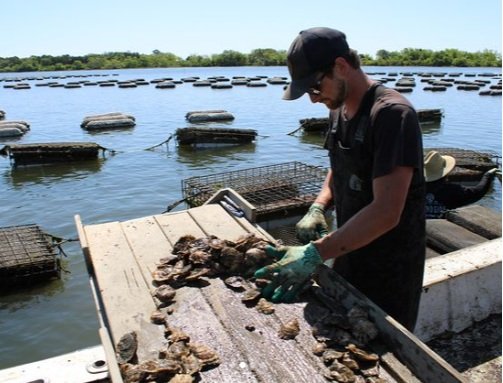The sun-kissed coastal areas of North Carolina are more than just a beautiful vacation spot. They are prime locations for the thriving economy of oyster farming. Sustainable aquaculture via oyster farming in North Carolina offers a wide variety of benefits.
What is Oyster Farming?
Oyster farming can also be known as oyster aquaculture, and is the cultivation of oysters for commercial purposes. While some traditional harvesting methods rely on natural oyster beds, oyster farming is done by carefully managed processes and planning to foster the perfect growth and harvest. In North Carolina, this industry has gained traction due to the fact that the state’s coastal conditions are the perfect environment and the rising demand of premium shellfish.
It Starts With Spat
Oyster farming relies on regimented cultivation practices that all have a humble beginning starting with oyster larvae, often referred to as spat. The process starts with the collection of spat, typically at a hatchery. These tiny baby oysters are then nurtured in controlled environments where they grow and thrive. Over time with the right care and strategic management, spat can grow into mature and ready-to-harvest Stump Sound Oysters with succulent meat and distinct flavor profiles.
Oysters are Environmental Stewards of the Sea
It’s no surprise that oysters are extremely delicious, but they also play a vital role as a type of ecological custodian. Oysters enhance the health of North Carolina’s coastal ecosystems. Since oysters are filter feeders, they actively purify the waters they live in getting rid of pollutants and sediment. In North Carolina estuaries, these bivalves are nature’s filtration system and they help promote water clarity. Oyster farms also provide a vital habitat for many different types of marine species to foster biodiversity and help stabilize the ecosystem.
Economic Impact of Oyster Farming
A benefit that might not come to mind right away is the fact that oyster farming helps create jobs and bolsters local communities around North Carolina’s coastal regions. Hatcheries, farms, and restaurants make up a portion of the oyster farming industry and each of these areas offers employment opportunities.
This ripple effect spans beyond direct employment at oyster farms and hatcheries, sectors like transportation, hospitality, sport fishing, and tourism also benefit from this industry’s growth. Oyster farming provides sustainable livelihoods and helps stimulate economic activity in the communities nearby.
The World is Your Oyster
Oyster farming in North Carolina really shines as a way of sustainability, prosperity, and environmental responsibility. The journey that oysters go on from spat to adult oysters playing a large role in ecosystem enrichment blends tradition and innovation with oyster farming.

